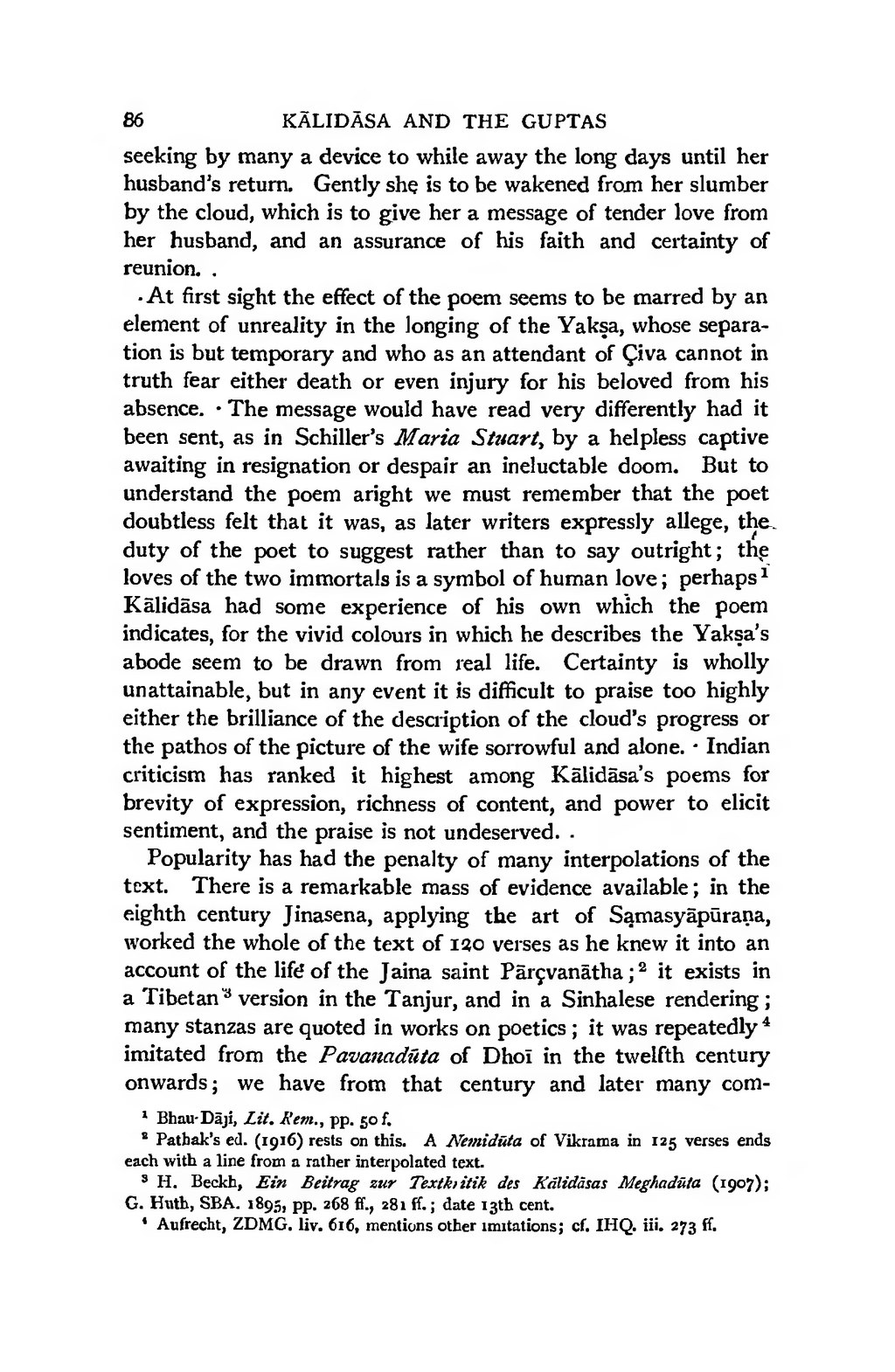86 KĀLIDĀSA AND THE GUPTAS seeking by many a device to while away the long days until her husband's return. Gently she is to be wakened from her slumber by the cloud, which is to give her a message of tender love from her husband, and an assurance of his faith and certainty of reunion.. .At first sight the effect of the poem seems to be marred by an element of unreality in the longing of the Yakṣa, whose separa- tion is but temporary and who as an attendant of Çiva cannot in truth fear either death or even injury for his beloved from his absence. The message would have read very differently had it been sent, as in Schiller's Maria Stuart, by a helpless captive awaiting in resignation or despair an ineluctable doom. But to understand the poem aright we must remember that the poet doubtless felt that it was, as later writers expressly allege, the. duty of the poet to suggest rather than to say outright; the loves of the two immortals is a symbol of human love; perhaps ¹ Kālidāsa had some experience of his own which the poem indicates, for the vivid colours in which he describes the Yakṣa's abode seem to be drawn from real life. Certainty is wholly unattainable, but in any event it is difficult to praise too highly either the brilliance of the description of the cloud's progress or the pathos of the picture of the wife sorrowful and alone.. Indian criticism has ranked it highest among Kalidasa's poems for brevity of expression, richness of content, and power to elicit sentiment, and the praise is not undeserved. 1 Popularity has had the penalty of many interpolations of the text. There is a remarkable mass of evidence available; in the eighth century Jinasena, applying the art of Samasyāpūraṇa, worked the whole of the text of 120 verses as he knew it into an account of the life of the Jaina saint Parçvanātha ;2 it exists in a Tibetan" version in the Tanjur, and in a Sinhalese rendering; many stanzas are quoted in works on poetics; it was repeatedly 4 imitated from the Pavanaduta of Dhoi in the twelfth century onwards; we have from that century and later many com- · ¹ Bhau-Dāji, Lit. Rem., pp. 50 f. 2 Pathak's ed. (1916) rests on this. A Nemiduta of Vikrama in 125 verses ends each with a line from a rather interpolated text. 3 H. Beckh, Ein Beitrag zur Textkritik des Kálidāsas Meghaduta (1907); G. Huth, SBA. 1895, pp. 268 ff., 281 ff.; date 13th cent.
- Aufrecht, ZDMG. liv. 616, mentions other imitations; cf. IHQ. iii. 273 ff.
